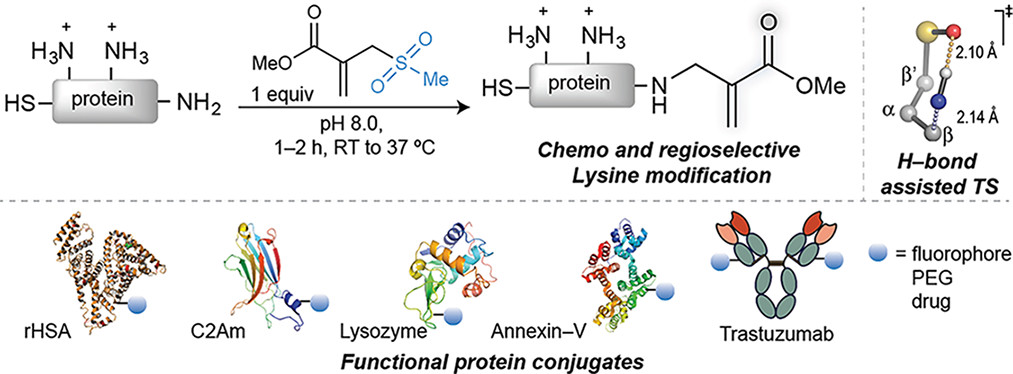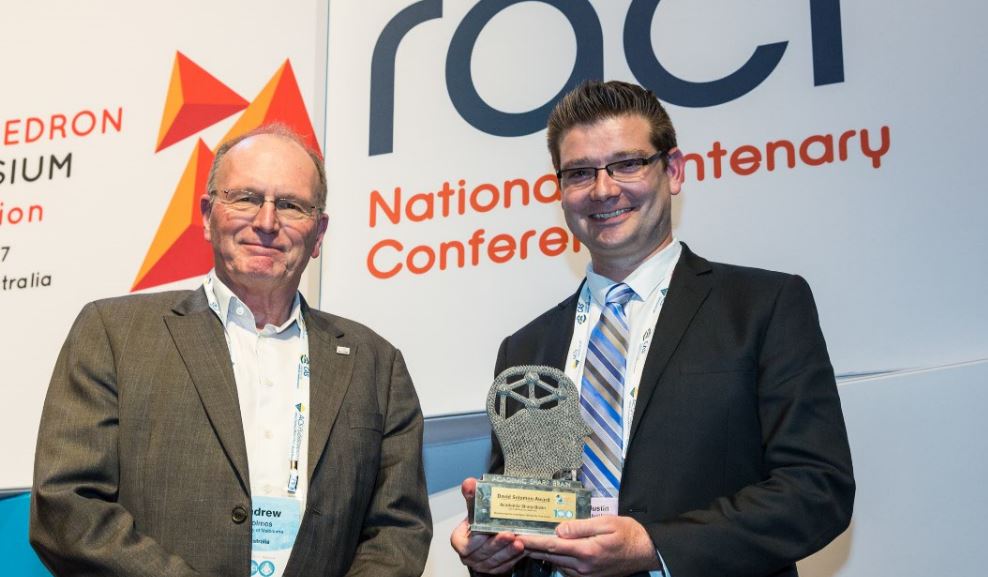
Tailor-made protein drugs in the fight against cancer and other diseases are a step closer, with the Centre for NanoScale Science and Technology at Flinders playing a part in one of the latest chemistry discoveries in effectively modifying therapeutic proteins.
Just published in the Journal of the American Chemical Society, a new paper entitled ‘Chemo- and Regio-selective Lysine Modification on Native Proteins’, describes a process which allows molecules, such as drugs, to be attached to antibodies and other proteins at precise locations.
“Most current methods for attaching drugs to proteins result in unwanted mixtures that can compromise protein function,” says Flinders University Senior Lecturer in Synthetic Chemistry Dr Justin Chalker, who is a collaborator on the research.
“In contrast, our chemistry is easy to do and highly precise,” he says.
The international team of researchers, led by Gonçalo J. L. Bernardes from the University of Cambridge and the Institute of Molecular Medicine Lisbon and Gonzalo Jiménez-Osés of the University of Rioja in Spain, has discovered a sulfonyl acrylate reagent that should give researchers more options for modifying proteins.
The reagent selectively targets only the most reactive lysine in a protein, and not other lysines or buried cysteines.
Lysines are nucleophilic and much more abundant than cysteines, representing about 5.9% of the amino acids in human proteins, the paper says.
“Most excitingly, the chemistry can be applied directly to proteins in their native form,” Dr Chalker says.
“This means that off-the-shelf therapeutic antibodies can be modified directly, attaching drugs that the antibody directs to diseased tissue.”
The research also reflects a ‘chain reaction’ between Flinders and Cambridge University in England.

Lead author Dr Gonçalo Bernardes was an International Research Fellow at the College of Science and Engineering last year.
This year, Dr Bernardes is hosting Flinders PhD candidate Lisa Alcock at his lab at Cambridge University under a prestigious Endeavour Postgraduate Scholarship.
They are studying new methods of understanding the cellular effects of oxidative stress, with Dr Chalker and Associate Professor Michael Perkins from the Flinders College of Science and Engineering.
The Journal of American Chemical Society paper, ‘Chemo- and Regioselective Lysine Modification on Native Proteins’ by MJ Matos, BL Oliveira, N Martinez-Sáez, A Guerreiro, PMSD Cal, J Bertoldo, M Meneiro, E Perkins, J Howard, MJ Deery, JM Chalker, F Corzana, G Jiménez-Osés and GJL Bernardes, has also been profiled in Chemical & Engineering News.

